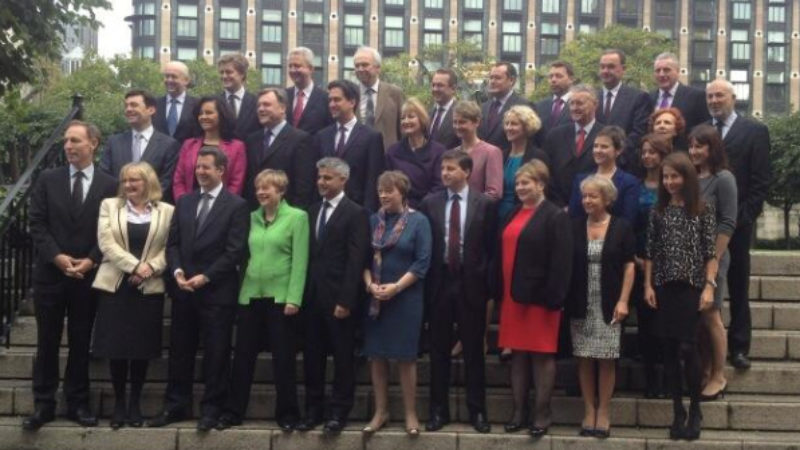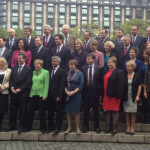
It’s a regular complaint in the Labour Party that the Shadow Cabinet aren’t pulling their weight – indeed earlier this year members of the Shadow Cabinet were warned that they needed to pull their fingers out if they wanted to remain at the party’s top table. Miliband is all too often left feeling like he’s his own outrider, and a number of “Milibandite” MPs have now set up their own “One Nation” grouping in the PLP in an attempt to address this. Now Alastair Campbell has weighed in on the debate, telling Total Politics:
“There are things they’re not doing which they could do: just sort of energy, and fight and inventiveness. Some of them are slightly trapped in ‘let’s put a press release out’.”
That the Shadow Cabinet need to up their game is something I’ve been banging on about for years. Too often it feels like it’s the two Eds that are making the majority of the running and – with a few notable exceptions – the Shadow Cabinet tend to be far too reactive. And even then, their reactions aren’t often newsworthy. Campbell is right that for too many “let’s put a press release out” seems to be a default response. I should know, I read all of their press releases. And if LabourList doesn’t always find what they’re saying particularly newsworthy, then I’m not sure who is supposed too…
But we also need to ask why the Shadow Cabinet aren’t doing more.
A regular complaint from members of the Shadow Cabinet, their teams and Labour MPs more broadly is that they’re incredibly constrained in what they can do. That’s partially due to the iron grip Ed Balls and the Treasury team have over anything that might have spending implications. In short – anything that is likely to cost money probably isn’t happening, and if it is, it sure as hell won’t be wasted on being announced by a Shadow Cabinet member – it’ll be saved for use by Ed Miliband. Sometimes that means you’re going to hold onto your policy announcement for a time when you might actually get to deliver it yourself.
But it’s not just about money. And it’s not just about policy either. Members of the Shadow Cabinet also regularly complain about the sign-off process required to produce any substantial intervention, speech or article. There’s often a need to make sure the the leader’s office are happy with what they’re saying – as well as the Treasury team – which makes reacting quickly nigh on impossible. So all too often by the time a response is forthcoming from the relevant Shadow minister, it’s too late. So people try and go around the system, or rattle through it as quickly as possible or “sneak something out” in an attempt to stay relevant as the bandwagon rolls on down the road without them.
This is something that the party – and Miliband – clearly recognise as a problem. Michael Dugher and Jon Ashworth have been brought into the Shadow Cabinet Office roles to tighten up Labour’s attack and rebuttal (just don’t call them the SEAL team), and the party recently hired Patrick Hennessy to improve the press operation. Both have begun to make a real difference and will be crucial in the run up to the next election.
But if we want to see a more visible, more engaged, more responsive and more pro-active Shadow Cabinet, then the shackles are going to have to come off a little bit. That may well mean Shadow ministers will sometimes say things that the party and the leadership might wish they hadn’t – but it might also mean that more of the public know who they are by election time. Winning an election and then governing afterwards will be far easier if that’s the case.
The reshuffle no longer hangs over the Shadow Cabinet table like the sword of damocles. That was restrictive and restraining enough (why do loads of work if you might be about to get sacked?). So, in these early months of this new(ish) Shadow Cabinet, isn’t it time to let them off the reins, just a little bit?





More from LabourList
‘As metro mayors gain power, Labour must tighten political accountability’
Letters to the Editor – week ending 22 February 2026
‘The coastal towns where young people have been left behind by Whitehall’